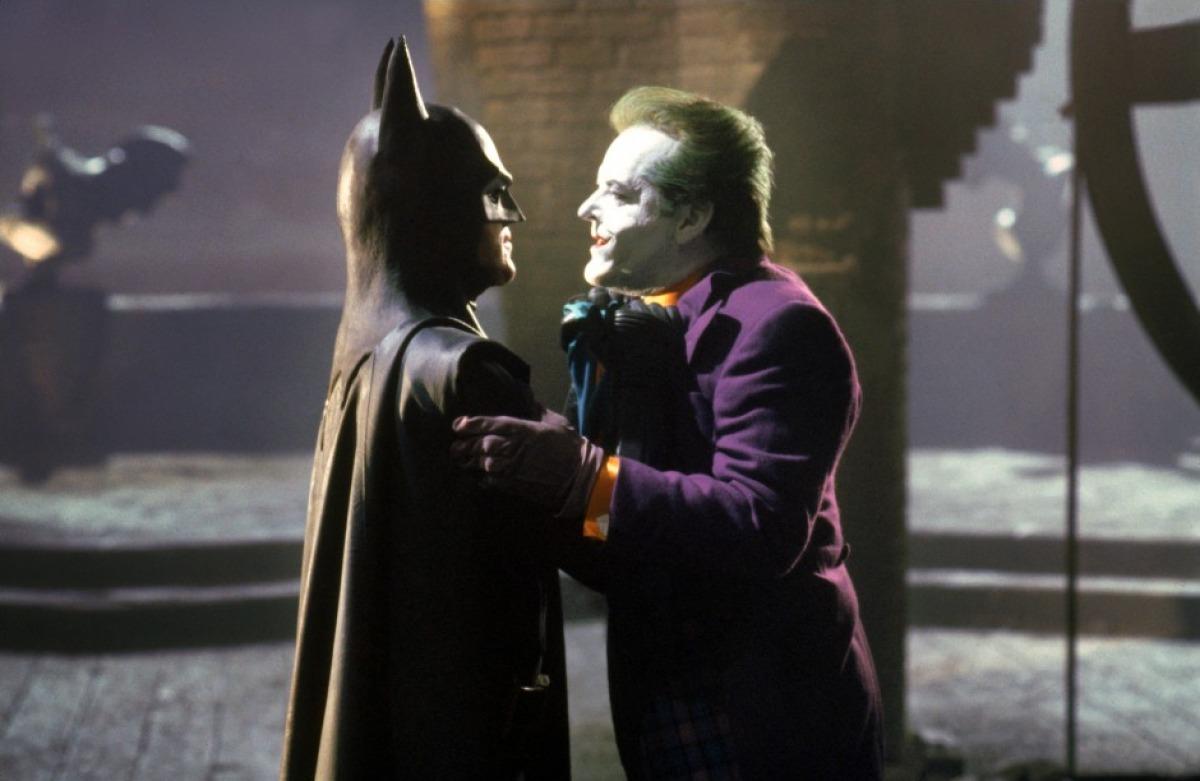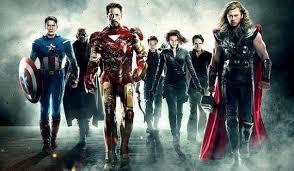Superheroes are extremely popular in modern society. They are considered good role models who teach us to stand up for justice and to protect others. This essay analyzes the question, “Why are superheroes so important in society?” and discusses whether modern day superheroes’ depiction can be bad for children.
Introduction: The Effect of Superheroes in Our Society
There is no need to stress the fact that the superheroes of our times have gone a long way in terms of not only physical, but also psychological development. While the release of Tim Burton’s Batman (1989) pinpoints the era of superheroes with a heavy and often tragic past, the concept of a more complex and three-dimensional character had emerged (Vollum and Adkinson 97) before in the series such as Hulk. However, it was after the above-mentioned movie that the idea of a superhero character, who represented justice, yet always had to walk the edge of the path between right and wrong, became the basis for most superhero movies.
Though the above-mentioned addition to the character development arch has already become a cliché, a range of movies still resort to incorporating it into the plot; however, much to the credit of the directors, variations of the specified scenario are suggested, therefore, making the superhero characters more creative. The change of the attitude towards the concept of a superhero character can be traced easily when comparing the present-day awe to the scorn, which superhero characters used to be looked at with in the past, when playing one “was considered an ignoble thing for a classical actor to do” (Hiddleston para. 1).
Moreover, by heralding the new area of superheroes with the aforementioned breakthroughs, moviemakers managed to break several major social stereotypes concerning gender roles and the associated psychological issues. Specifically, the concept of the acceptable behavior assigned to a specific gender seems to be slowly washed away by the sands of time as new concepts of emotional responsiveness are introduced to younger audience with the help of superhero characters: “Boys need to know that it’s OK to cry and need saving sometimes” (Sakai para. 9).
Description of Superheroes in the Modern Society
The modern society defines the superhero as the person that protects the members of the society in question and provides security thereof. It is quite remarkable that the phenomenon of superhero-ism, for the lack of a better term, can possibly be applied to the ones, who save others even at the cost of their own lives. The above-mentioned note to the description of a superhero in the contemporary American society invites the possibility of granting the title of a superhero to actual people, who carry out seemingly impossible missions and save others’ lives.

The fact that a modern superhero is at odds with the legal bodies representing the governmental power, however, makes the existence of superheroes in reality a rather questionable concept, though. Indeed, a deeper look into the essence of a modern superhero will reveal that the latter fixes the problems that the corresponding governmental bodies fail to. In fact, the very conflict between the righteous superheroes and the legal authorities, which are portrayed as either corrupt or inept at their attempts at fighting crime, displays the fact that people consider them as an enhancement, if not an alternative, of the existing legal system: “While it is true that each of these caped crusaders is aware of the existence of Ideological State Apparatuses such as religion, education, politics, and communication, none of them are controlled by these forces” (Hughes 547).
In a certain way, the increase of the audience’s hype for superheroes can be interpreted as the process of the U.S. citizens’ acknowledgement of their “Indifference to confronting evil and in humanity by some groups not only affects our personal lives, but also seeps into social circles and weakens political ideals” (Ross 3).
This leads to the idea that a superhero should be viewed as not a human being, but an entity, which represents the security and safety that the American society has been striving for since recently and basically is “the construction of a post-9/11 revenge fantasy that takes place against the backdrop of unpopular foreign wars” (Doll para. 3). It is quite remarkable that the hype for superhero movies appeared shortly after a range of political and economic crises within the country, as well as the disclosure of certain instances of misjudgment and faults of the current legal system. The phenomenon, therefore, reflects the social criticism of the U.S. legal system.

The Reasons of Society’s Obsession with Superheroes
When it comes to dissecting the human nature and analyzing what makes superheroes so appealing to an average member of the audience, one may find out that the actual factors contributing to the popularity of these characters are, in fact, a fascinating mixture of egotism and altruism.
Based on the concept of Greek heroes, the superheroes of our times incorporate their basic characteristics, i.e., inhuman strength, unbelievable intelligence, etc., which border human and godly capacities. In other words, the Greek concept of a hero as the missing link between gods and people is used successfully in modern media to promote an obviously flattering concept to an otherwise commonplace member of the audience: “Superheroes are the Greek gods of secular modern life – otherworldly figures able to tackle the problems of this human world” (Wright para. 4).
Moreover, in most cases, physical attractiveness is a necessary quality of the superheroes of the 21st century, which makes them inadvertently more appealing to the general audience: “Another factor into why Americans love superheroes is the ability to relate to and project into them as a form of wish-fulfillment fantasy” (James para. 7).
On the other hand, there is an evidently altruistic element to the nature of superheroes, i.e., their duty to restore justice. In other words, the concept of a superhero reflects the current issues in the legislative system and the problems within the government structure by acknowledging their faults. More importantly, the phenomenon of a superhero works as a booster for empowering people to change the existing problems within the legal system.
How Do Current Events Shape Superheroes?
The fact that the traditional image of a superhero has undergone such drastic changes over a seemingly small course of time begs the question whether the traditional men of steel as they are portrayed in comic books, movies and other types of media can, in fact, be regarded as such. Indeed, a closer look at the tendency to humanize superheroes, making them more relatable to an average member of the target audience, can be the proof of the fact that the people, whose duty involves saving, guarding and protecting every denizen of the population, and who do so retaining their human dignity, must be called the actual superheroes.
Indeed, a range of the characters, who do not technically possess any superpowers, yet still deploy their capacities to the maximum in order to protect others, have been quite recurrent in a range of media, Batman being among the most famous ones. Thus, the evolution of the genre makes the superhero characters walk a very fine line between being a mere human being and the omnipotent force, which shields the mere mortals from the dark forces of evil.
Theatrics aside, though, the superheroes of the 21st century have shown that these are not their physical powers that are viewed as the key asset, but their ability to navigate and control the complex world of their emotions, at the same time doing their best to secure the people that depend on them. On a range of levels, the above-mentioned description can be applied to average members of the modern society, whose job concerns saving or protecting people, i.e., policemen, firemen, etc. It is the combination of traditional virtues (i.e., kindness, courage, forgiveness, mercy, etc.) and the spiritual qualities (i.e., emotional intelligence) that defines a superhero in the modern society and invites the possibility for a mere mortal to join the ranks thereof.
In other words, the movies and comic books created recently and based on the new concept of a superhero have allowed for every single member of the contemporary society to experience the process of turning into one, relate to the character closer and, thus, feel self-important. As a result, the new interpretation of a superhero allowed for literally anyone to try turning into one by pushing the envelope and exploring new opportunities in terms of facilitating security for the members of a particular society. Despite the fact that the above-mentioned effect can be viewed as the process of leveling the superhero character with a commonplace one, it promotes a new way of looking at the social and political role of an average citizen.
Conclusion: Modern Day Superheroes and Their Impact on Society
One must admit that the concept of a superhero has been altered considerably over the past few years. Casting a single glance at the comic books of the 60s and the superhero movies of the 2010s will show that superheroes are taken very seriously nowadays; they have acquired the dark, brooding characteristics, which make the audience question whether what they are doing is actually the right thing. More importantly, they have got rid of a range of stereotypical characteristics. Although the above-mentioned progress may lead to the development of new emotional stereotypes among the American superheroes, the fact of their change remains undoubted.
The present-day superheroes have shifted towards being the guardians of the population and protecting them from rather tangible threats; clearly being a legacy of the unstable era of the late 1990s and the early 2000s, the specified innovation in the process of character writing can be interpreted as both a plea for help and as the process of shaping the citizens’ identity as political and social agents.
By creating the concept of the superheroes, who represent the very essence of justice, the members of the American society promote the qualities, which they would like to see as a part and parcel of the present-day justice system. Therefore, the modern concept of a superhero boils down to the characters, who are confident about their interpretation of justice as the basic set of rightful and wrongful actions and implement the specified system within the society in question, therefore, providing the protection that people need and rectifying the legal system’s faults and failures.
Works Cited
’25 Things You Didn’t Know about Avengers.’ ScreenRant. 2015. Web.
Doll, Jen. “On the Importance of Having Superheroes”. Thewire.com. 2012. Web.
Hiddleston, Tom. “Superheroes movies like Avengers Assemble should not be scorned.” The Guardian. 2012. Web.
Hughes, Jamie. “Who Watches the Watchmen?”: Ideology and “Real World” Superheroes”. The Journal of Popular Culture 39.4 (2006): 546-557. Winthrop University Readings. Web.
James, Sarah. “Why America Loves Superheroes”. 2013. The Digital Universe. Web.
Moore, Trent. “Go Inside Burton’s 1989 Batman with Rare, Vintage Making-Of Documentary.” Blastr. 2014. Web.
Ross, Robert. “Are Marvel Comics characters society’s current “Fix” for real world problems?” CCB Boulder News. 2014. Web.
Sakai, Kali. “Save Our Superheroes”. ParentMap, 2014. Web.
Vollum, Scott, and Cary Adkinson. “The Portrayal of Crime and Justice in the Comic Book Superhero Mythos”. Journal of Criminal Justice and Popular Culture 10.2 (2003): 96-108. University at Albany. Web.
Wright, David. “Why Are We Obsessed With Superheroes“? ABC News. 2013. Web.